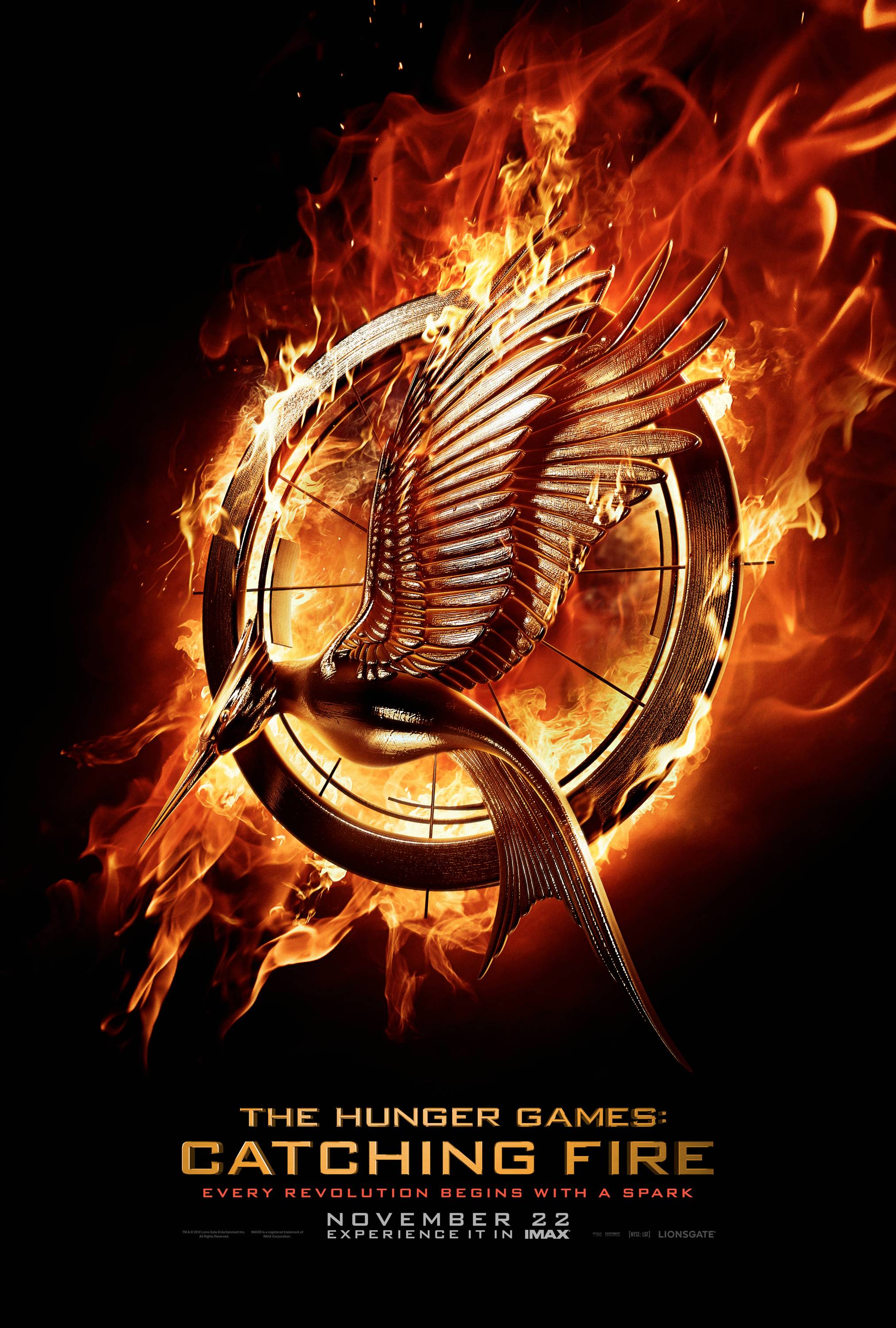 The Hunger Games: Catching Fire
The Hunger Games: Catching Fire
Directed by: Francis Lawrence Cast: Jennifer Lawrence, Josh Hutcherson, Philip Seymour Hoffman, Donald Sutherland, Stanley Tucci, Elizabeth Banks Running Time: 2 hr 26 mins Rating: PG-13 Release Date: November 22, 2013
PLOT: The second installment in the Hunger Games franchise, where hero Katniss (Lawrence) and fake-lover Peeta (Hutcherson) assume celebrity status for killing people.
WHO'S IT FOR? Dissenters and fans of the original alike.
OVERALL
Defying any inclination to judge the intent of a franchise by its first film, sequel The Hunger Games: Catching Fire yearns to stir up some rebelliousness within its packaging as a mainstream franchise commodity. The characters within this story may not be too stoked that their story has become a million-dollar juggernaut, but they'd be pleased to see that the ideas are not going to deaf ears; the movie doesn't allot the type of comfort that mass entertainment has convinced itself it should be providing. Instead, ideas and relevancy abound in a first sequel that shows this franchise could make an impression larger than any comparisons that may have been originally made to Battle Royale.
Jennifer Lawrence, newly-anointed Oscar winner and important Hollywood person who tries to live outside the celebrity matrix, is in fine form here. Within a script that is so gloomy, and requires numerous emotional stunts, she gives the movie's expression of grief its complications. She maintains comfort in the role through the script's surprising events, adding some snap to the dialogue, and a darker presentation of a celebrity soldier's bravery as she steps into the third act's games. Lawrence's work turns essential with the film's final shot, which rhymes her previous expressions, but then certifies a distinct transformation that will carry this character and the franchise into its final chapters.
Like last month's Ender's Game, The Hunger Games: Catching Fire gains particular gusto from its strong performances, who coast the story through pages of dialogue with vibrant dramatic work. A striking addition to the Hunger Games world is Philip Seymour Hoffman, who pops into this movie unexpectedly and with a haircut directly reminiscent of his "I put a bomb in your head" theatrics in Mission Impossible III. Here, he takes the role of Wes Bentley's previous Seneca Crane, that of the "Hunger Games" game-master, but without any sense of flair. Whereas Bentley had a beard shaved to resemble flames on his face, Hoffman is the subdued opposite, delivering his lines with coldness, and a bit of irritation.
Under new direction from Francis Lawrence, The Hunger Games: Catching Fire gives the franchise's mark a significant visual upgrade, particularly in its sense of owning a specific tone. Cast away are former cinematographer Tom Stern's shaking cameras from the first film, here to stay is a distinct visual palette which currently finds our characters inhabiting a world of icy colors and lights, fitting for the atmosphere created by the story itself. In contrast, it lets the 1% extravagant brightness of the film, like Stanley Tucci's perversely perfect teeth or the the flamboyance worn by Elizabeth Banks' Effie Trinket, linger with even more distinct contrast. With the loss of shakicam as well, The Hunger Games: Catching Fire has action that is clear and clean-cut.
The thrills of watching this film unfold are found in its spirited mind games, where the script gets twisty with moral complications and misdirections. With this film the franchise reveals itself as tactful setups of direct expectations (all but one are going to die, right?) and then takes the more monumental route, sophisticated by snappy dialogue and drama. Coming after the success of the first film, the Hunger Games has certainly earned time to really let its striking themes play out with ease, providing a clear vision of its disturbing dystopia where forced fascination with celebrity intermingles with soldier culture.
Of its many ideas and characters, the film's center competition could certainly be chalked up as its least inspired attribute. It has a distinct placement and purpose within the story, but is more like a transitional device, to provide viewers what they may originally consider to the be the most important part of the film, and to slowly set up the bigger things from before. The physical trickery within the actual game is not as clever as the ideas to be found in dialogue in other parts of the movie; something involving CG monkeys brings back After Earth nightmares, and a revelation about the arena is shown with a gee-whiz goofy wide shot. Interestingly enough, these games are not presented with the full media spectrum as the first one, making the course of these events run more straightforward than previous.
The film's violence, still a bit jarring for such a demographic, is but one striking aspect, and one that shows now to have highly constructive use. Along with its presentation of a culture distracted from immediate issues by the falsity of celebrity, this movie arms its viewers with a vital sense of awareness. With the franchise now boasting significant momentum and promise, The Hunger Games: Catching Fire is a bit of a revolution in itself.
FINAL SCORE: 8/10
